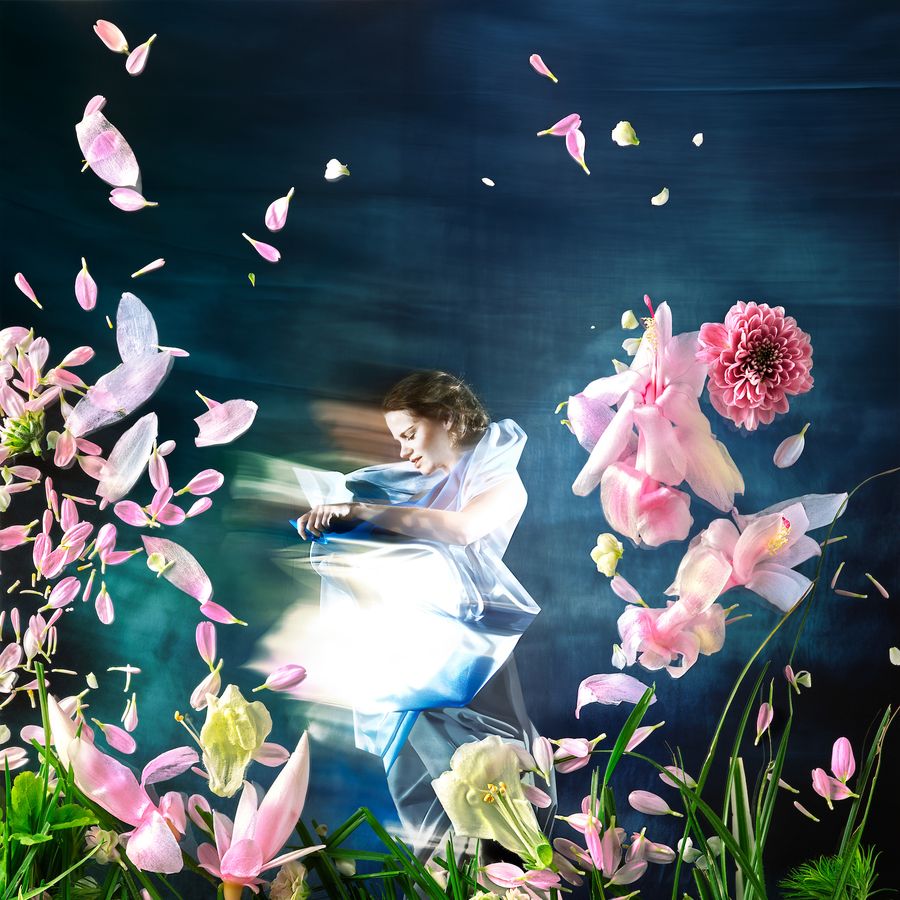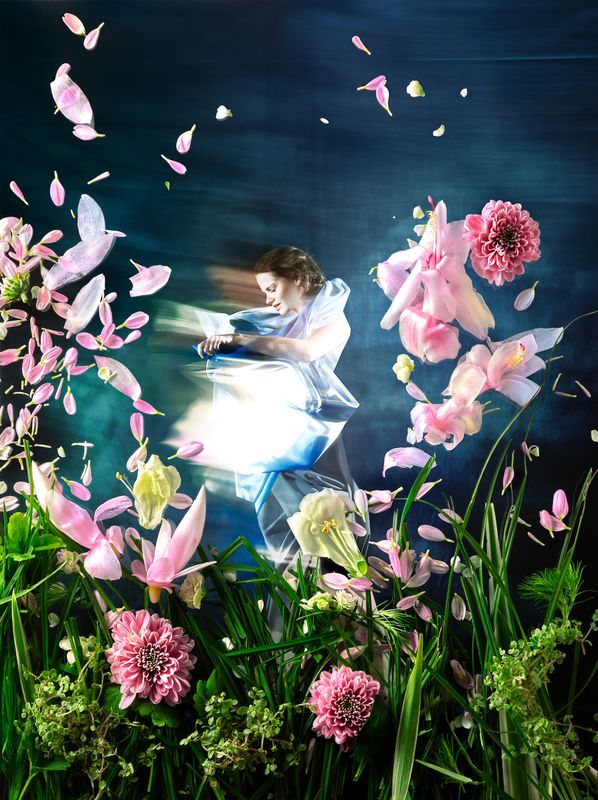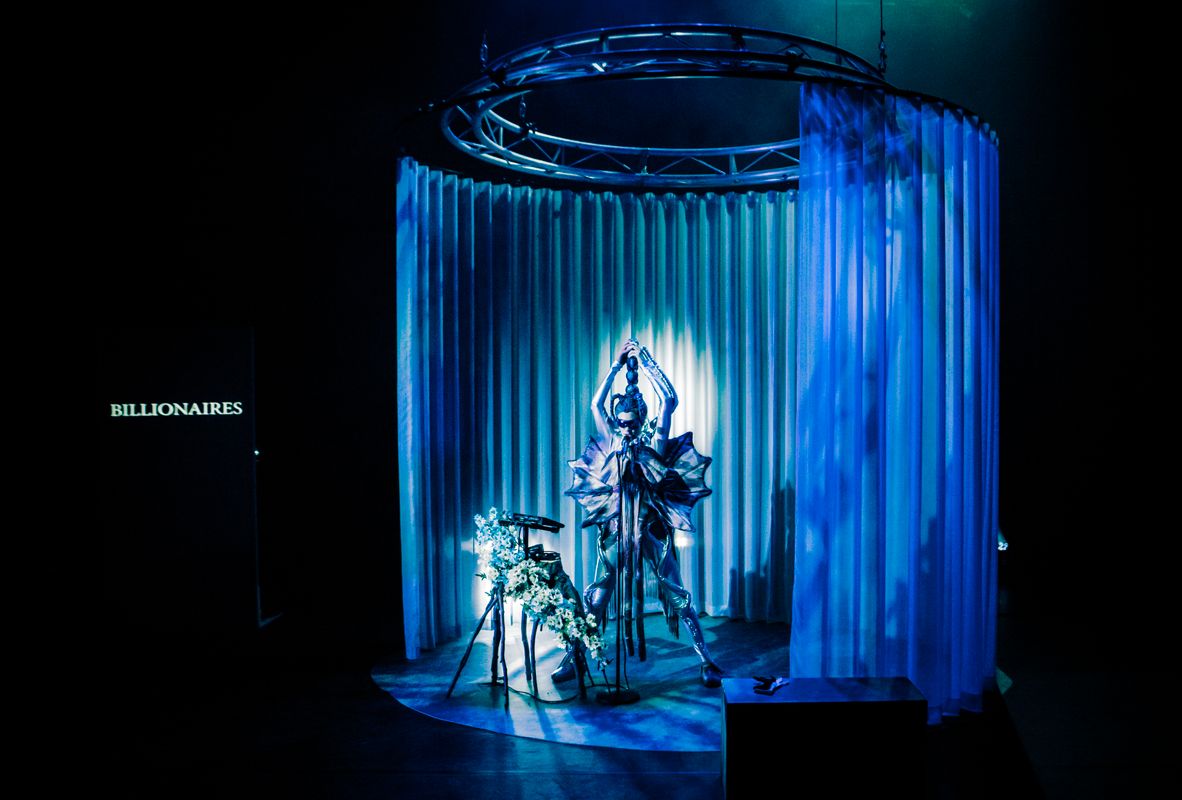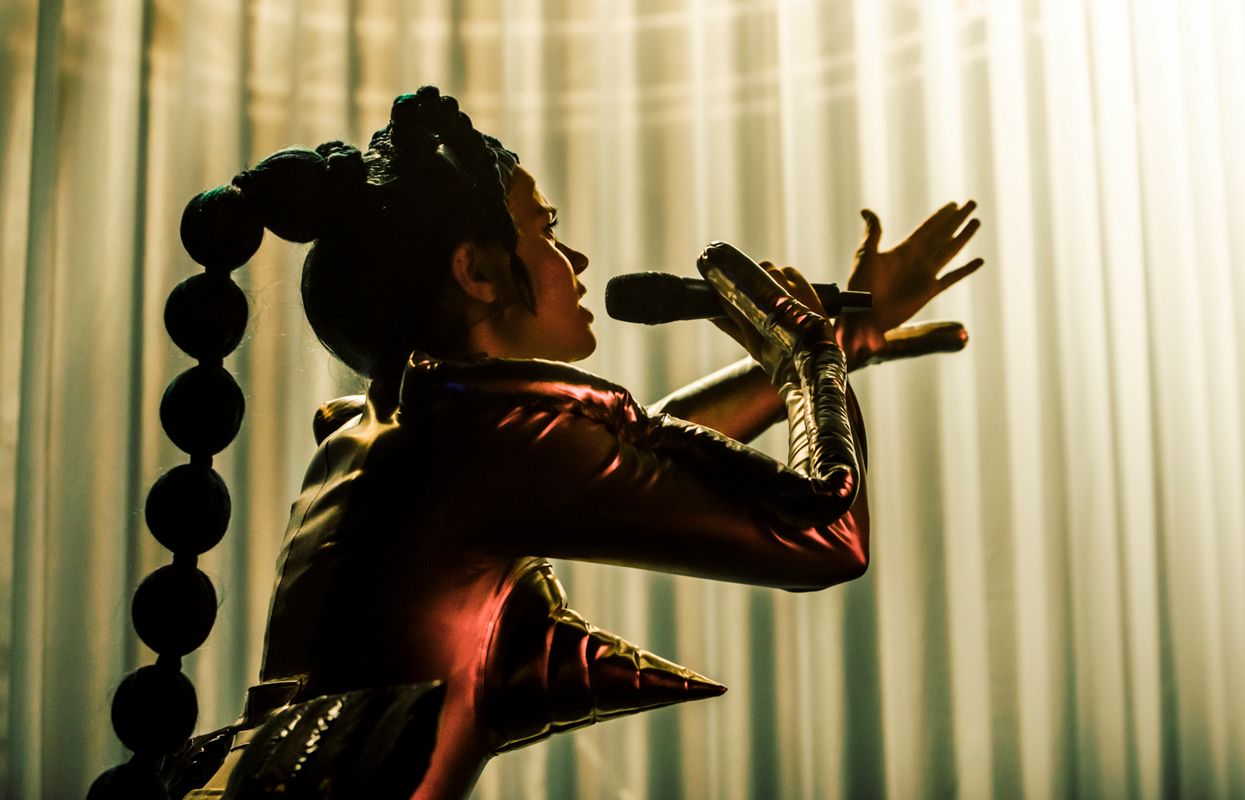
The Gaia Hypothesis
-
di 7 nov20:30Grote Zaal
-
wo 8 nov20:30Grote Zaal
ENG
What does a fish think about the future of humanity?
The Gaia Hypothesis (1969) imagines the earth as a self-regulating system, in which all life is inextricably connected. If we are all part of the same system, maybe we should ask other parts of this system what to do?
In her solo performance Lindertje Mans invites you into this thought experiment. She will transform into a deep-sea fish, a space shuttle and a human cell: these three characters share their vision on humanity, told through compelling synthpop songs. A tantalizing onewoman electro-opera with seductive songs, mesmerizing costumes and unexpected transformations.
Lindertje: “The Gaia Hypothesis gives me a new perspective on my place on the planet. It truly fascinates me. In the seventies, the hypothesis was received with skepticism, but it has only become more urgent since then, and is now on the basis of modern climate science. Apart from that, it is a personal way for me to explore my position in this world, as a woman in her thirties: what do I need to feel connected?"
Credits
concept, text, performance Lindertje Mans
songs Lindertje Mans, Roald van Oosten
music production, sound design Roald van Oosten
direction, stage design Thomas Schoots
costume design Anne-Rixt Gast
dramaturgy Emke Idema
Meer over de makers
Lindertje Mans studied performance at Toneelacademie Maastricht and music theatre at the Royal Conservatory The Hague. She is co-founder of Dutch theatre collective Firma MES.
Roald van Oosten is a musician and composer. His music ranges from pop gems to ghostly theatrical soundscapes. He started as lead singer of Indie popband Caesar. In 2019 Roald was commissioned by the National Theatre in London to write music for the play: When We Have Sufficiently Tortured Each Other, directed by Katie Mitchell, starring Cate Blanchett.



